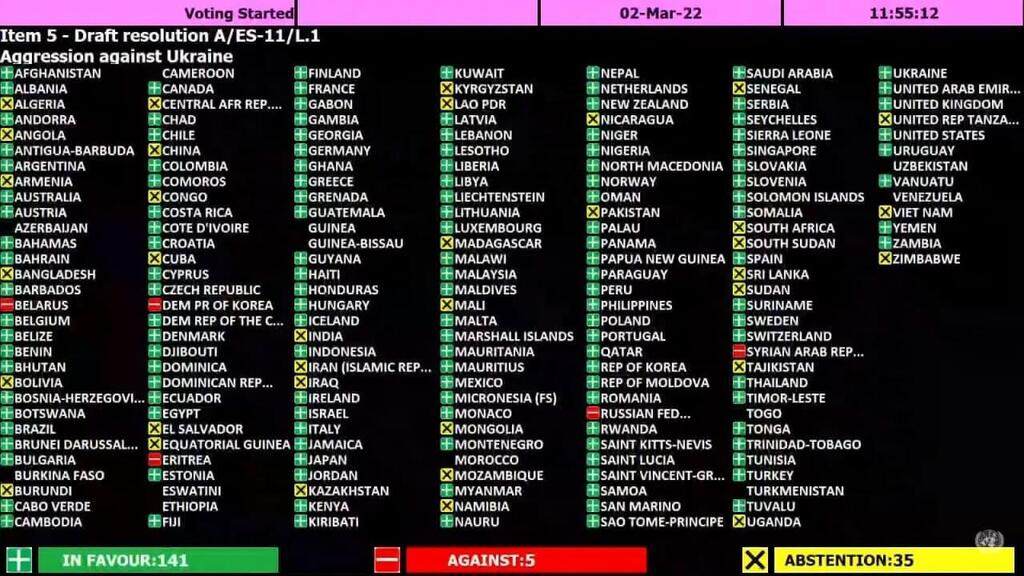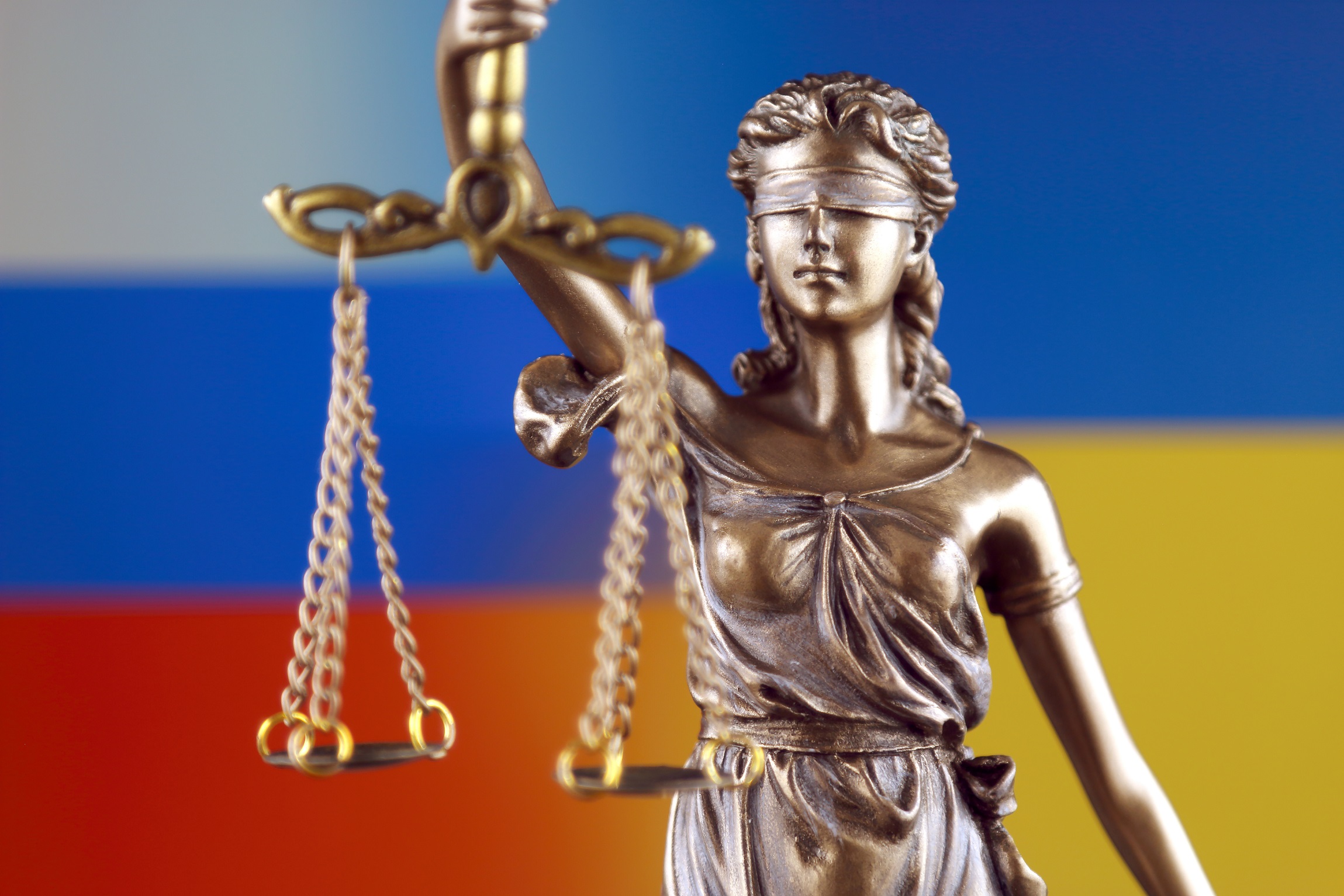Publications
INSS Insight No. 1566, March 10, 2022
The Russian invasion of Ukraine constitutes a blatant violation of Article 2(4) of the UN Charter, which prohibits states from using force against the territorial integrity or political independence of another state. It also amounts to a crime of aggression. The action has led to UN resolutions against Russia and the establishment of a commission of inquiry, as well as the rapid commencement of an investigation by the Prosecutor of the International Criminal Court into suspected war crimes. In addition, proceedings against Russia have begun in other international tribunals. The legal channels will not stop the advance of the Russian army, but they are important in terms of the message they send to Russia and the whole world. They demonstrate the isolation imposed on a state that decides to undermine the world order, even when that state is a superpower. Israel must not be seen as condoning Russian aggression, if only tacitly. In addition to the strategic cost with respect to its relations with its allies, primarily the United States, and potential – if inadvertent – support for accusations made against Israel as a lawless and aggressive state, sitting on the fence could put Israel on the wrong side of history. Moreover, such conduct is not in keeping with the values on which the State of Israel is founded.
The Russian invasion of Ukraine is the most extensive belligerent action between states since the end of World War II, and threatens the world order established in the wake of that war. The invasion also has legal ramifications, and the campaign against it includes legal tools.
The invasion itself constitutes an unequivocal and blatant violation of Article 2(4) of the UN Charter, which prohibits states from using, or threatening to use, force against the territorial integrity or political independence of another state. This ban is considered a preemptory norm in international law. Interestingly, Putin does not deny the existence of the prohibition but has tried to justify the invasion with legal arguments, as he did regarding Russia's invasion of Ukraine in 2014.
The Russian argument is based on Article 51 of the UN Charter, which recognizes the “inherent right” of a state to use force in self-defense in response to an armed attack. In his declaration of the "special military operation" on February 24, 2022, Putin noted the danger to his country from the eastward expansion of NATO and the positioning of advanced weapons in Ukraine, amounting to what in his view is an existential threat that justifies the use of force in self-defense. Clearly there is no factual basis to the claim that Russia was under a concrete threat, which could justify a claim of self-defense, even taking the broadest interpretation of this right. Putin also claimed that Russia is acting by virtue of the right to collective self-defense, in that it is coming to defend the pro-Russian separatists in Ukraine that are allegedly under attack by the Ukrainian government. Beyond the question of the factual basis of this claim, collective self-defense, which allows a state to answer a call for help from a country under attack, only exists when the request comes from a state and not from non-state actors. Russia’s recognition of the independence of the two separatist regions of eastern Ukraine, Donetsk and Luhansk, has no legal validity and therefore the invasion cannot be regarded as the response to a call for help from another state.
Furthermore, the use of force in self-defense is subject to principles of necessity, i.e., the lack of a non-violent way to remove the threat, and of proportionality, i.e., the force used does not exceed what is required to deal with the threat. The Russian action plainly fails to meet these principles, as evidenced by the declared objectives of the military campaign, which go far beyond eliminating a concrete threat, and refer to goals of demilitarizing Ukraine, revealing Russia's intention to generate a regime change and to bring Ukraine under Russian influence.
The Russian invasion of Ukraine amounts also to an international crime of aggression. Moreover, there are many reports of Russian forces committing war crimes, such as deliberate attacks on civilians, disproportionate use of force, and use of prohibited weapons.
For its part, Ukraine has the undisputed right to defend itself. Ukraine can also request other states to join its efforts to defend itself, and the use of force against the Russian attacks by other states would be permitted under the collective right to self-defense. At the same time, the laws of armed conflict apply equally to both sides of the conflict, so the Ukrainian forces must adhere to them, even though they belong to the party that is the victim of the aggression.
Furthermore, the invasion is a flagrant breach of the Russian commitment under the Budapest Memorandum of 1994 to respect the existing borders and territorial integrity of Ukraine and to refrain from threatening it or using force against it. The memorandum was signed as part of Ukraine’s joining the Nuclear Non-Proliferation Treaty (NPT) of 1968, and its consent to dismantle any nuclear weapons that remained in its territory following the collapse of the Soviet Union (at the time, the world’s third largest stockpile). The memorandum was also signed by the United States and Britain. On February 21, a few days before the invasion, Ukraine contacted the Security Council with an urgent request for consultations, pursuant to Article 6 of the memorandum, to discuss urgent actions aimed at de-escalation and steps to guarantee the security of Ukraine. In addition, Russia’s announcement about raising the alert level of its strategic forces, including those that use nuclear weapons, conflicts with the joint statement of January 3, 2022 published together with the other permanent members of the Security Council, in which they called for the avoidance of a nuclear arms race and war, and declared that such a war must never be fought.

Russia’s blatant violations are challenged in several legal channels. The first channel comprises the UN bodies. As expected, on February 25, Russia vetoed a Security Council draft resolution condemning the invasion. Consequently, on February 27, the Security Council adopted a procedural resolution (for which there is no right of veto) calling on the General Assembly to convene an emergency special session on the matter. This was the first time in forty years that the Security Council has taken such a step, which is in accordance with Resolution 377 of the General Assembly of 1950, known as “uniting for peace.” This resolution authorizes the General Assembly to draft recommendations for UN members regarding collective measures, including the use of force, in cases where the Security Council fails to exercise its primary responsibility for the maintenance of international peace and security due to lack of unanimity among the permanent members. Subsequently, on March 2 the General Assembly, with the broad support of 141 countries, including Israel, adopted a resolution strongly condemning the Russian invasion of Ukraine and calling on it to withdraw its forces from Ukrainian territory. Only five countries opposed the resolution.
In addition, on March 4, the UN Human Rights Council condemned Russia’s human rights violations in Ukraine and established a commission of inquiry to examine these violations and suspected war crimes. The resolution was passed with a majority of 32 (including the United Arab Emirates and Qatar) with two against (Russia and Eritrea) and 13 abstentions (including China and India).
The second channel is criminal proceedings. Ukraine and Russia are not members of the International Criminal Court (ICC), but in 2015 Ukraine gave an ad hoc declaration accepting the court’s jurisdiction in its territory starting on November 21, 2013. In December 2020 the former ICC Prosecutor determined that there was a basis for opening an investigation into potential war crimes committed during the annexation of the Crimean Peninsula and the fighting in eastern Ukraine in 2014, but left the decision up to the new Prosecutor. On February 28, Prosecutor Karim Khan announced that in view of the situation, he intends to proceed with opening an investigation as soon as possible, which will include suspected war crimes committed in the course of the current fighting. To enable the immediate start of the investigation, without waiting for approval from the Pre-Trial Chamber, 39 member states, led by Britain, made an official referral to the Prosecutor to open an investigation. Subsequently, the Prosecutor announced that teams of investigators are sent to Ukraine to gather evidence. The investigation will not refer to the invasion itself (the crime of aggression) because, as the Prosecutor explained, the Court cannot exercise jurisdiction over this crime since Ukraine and Russia are not members of the Court.
The third channel is that of other international tribunals. On February 26, Ukraine filed a complaint against Russia with the International Court of Justice (ICJ), and asked for provisional measures. The jurisdiction of the ICJ is conditional on consent by the states involved to litigate before it. Consent in this case is anchored in the 1948 Convention on the Prevention and Punishment of the Crime of Genocide, in whose context the Court has jurisdiction over Russia and Ukraine, in view of Russia’s allegations that Ukraine is committing genocide in the separatist regions. Ukraine has accused Russia of distorting the concept of genocide and of false allegations, as well as of planning genocidal action against the Ukrainian people. The Court resolved to hold hearings regarding the request for provisional measures as soon as possible. There is also a pending complaint filed with the Court by Ukraine against Russia in 2017 for ethnic discrimination against Ukrainians in Crimea (under the International Convention on the Elimination of All Forms of Racial Discrimination – ICERD), and for financing terror organizations in the Donbas region (under the UN Convention Against Financing Terror).
In addition, on February 28, Ukraine asked the European Court of Human Rights (ECtHR) to take urgent interim measures against Russia. On March 1, the Court instructed Russia to refrain from attacking civilians and civilian objects, to ensure the safety of medical teams in areas under attack or siege, and to report on implementation of the instruction. The Court is already engaged in several other pending complaints by Ukraine against Russia, and in January 2021 ruled that complaints about systematic breaches of human rights in the Crimean Peninsula were admissible and would be heard on their merits.
Clearly these legal channels will not stop the advance of the Russian army, but they are important in terms of the message they send to Russia and the whole world. The invasion of Ukraine is an unequivocal case of a flagrant breach of the basic principles of international law, which undermines the world order established after World War II. Wall to wall condemnation of Russia, legal proceedings, and the unprecedented sanctions imposed on Russia, when even states such as China refrain from voting against resolutions condemning Russia, demonstrate the isolation that is the fate of states that decide to break all the rules, even in the case of a great power.
Israel defines itself as a Western, democratic, and advanced country. If Israel can play a useful part in settling the dispute, then it should do so. However, it is important for Israel not to be perceived as condoning Russian aggression, if only by virtue of its silence. In addition to the strategic cost of its relations with its allies, primarily the United States, and support for accusations made against Israel as a lawless and aggressive state, sitting on the fence could put Israel on the wrong side of history. Apart from that, such conduct is not in keeping with the values on which the State of Israel is founded.



